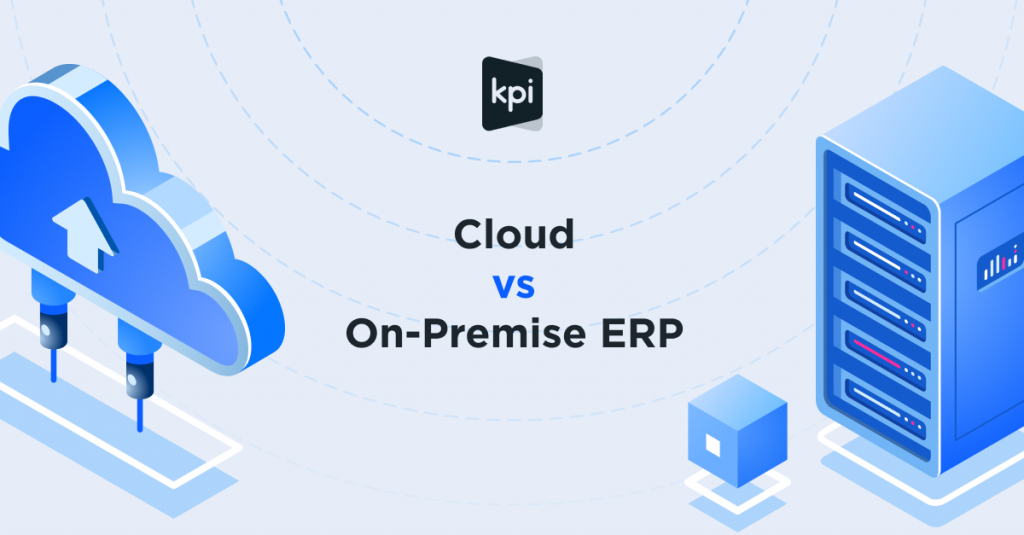When considering a new ERP system for your business, you need to decide whether to use cloud-based ERP or on-premises ERP.
There are some significant aspects that need to be clearly identified before deciding on an option. You should consider components such as security, storage, compliance, infrastructure, customization, and integration. Each system has its pros and cons. Let’s look at which one is best for your business.
What Is Cloud ERP?
Cloud-based ERP system or cloud ERP is software that runs in the cloud. Usually, the fees depend on the amount of cloud services businesses use during a certain amount of period (monthly or annually). This business model also is called Software as a Service (SaaS).
A swiftly developing range of businesses discover that cloud ERP for SMEs significantly has transformed their businesses. Let’s discuss the pros and cons of the cloud ERP:
Pros of Cloud ERP
The main benefits of a Cloud ERP include:
- Quick Implementation – it will take a few days to go live with a cloud ERP system. Hence, it will save your time and automate your business functionalities faster.
- Lower Investment – cloud ERP systems allow SMEs to spend less money on software and hardware up front. Most cloud ERPs charge on per-user basis, and the absence of infrastructure costs is the most significant cost reduction.
- Anytime and anywhere access – cloud ERP offers full access to your account data from anywhere, anytime via device. It’s a fantastic benefit for large companies with a number of locations, and it’s especially effective during the pandemic.
- Scalability – it enables business growth. All the business requirements can be provided on-demand including new users, tools and more.
Cons of Cloud ERP
The Cloud-ERP system has few major drawbacks, although the following are some of them:
- Customization Options – majority of cloud ERP systems do not provide customization opportunities. It might be tough to build or add certain features for your business. However, depending on which ERP supplier you pick, the software may be customised.
- Internet Dependent – if there is not a stable internet connection, your work may be slowed and hampered. To avoid any big delays, it is necessary to carefully select an internet provider.
What Is On-Premise ERP?
On-premise ERP is the system that is deployed on in-house servers. Despite the rise in popularity of Cloud-ERP systems, on-premises solutions are still actual.
Pros of On-Premise ERP
- Data Security – regardless of how secure cloud ERP systems are these days, some businesses will always want to have control over their software, hardware, and data. This is the situation with On-Premise.
- Customization – on-premise ERP deployment allows you with more options for customization and integration
Cons of Cloud ERP
- Maintenance – on-premise ERP requires a significant amount of investment on maintenance and hardware servers. Furthermore, you should consider ongoing costs on maintaining the IT employees, training, and supporting the system.
- Hardware Dependent – there will be a huge dependence on hardware and local servers. You might face unplanned downtime during your work time that might seriously affect your productivity.
Conclusion
It is important to highlight the advantages of cloud ERP and any organization of any size may implement cloud ERP to substantially increase their productivity and agility. Affordable, high-performance cloud ERP systems for small businesses did not exist a few years ago. They do it now.
With KPI cloud ERP, you quickly convert your business into a more productive and agile organization. Try kpi.com’s 14-day trial and fill out the form below to request a demo.
